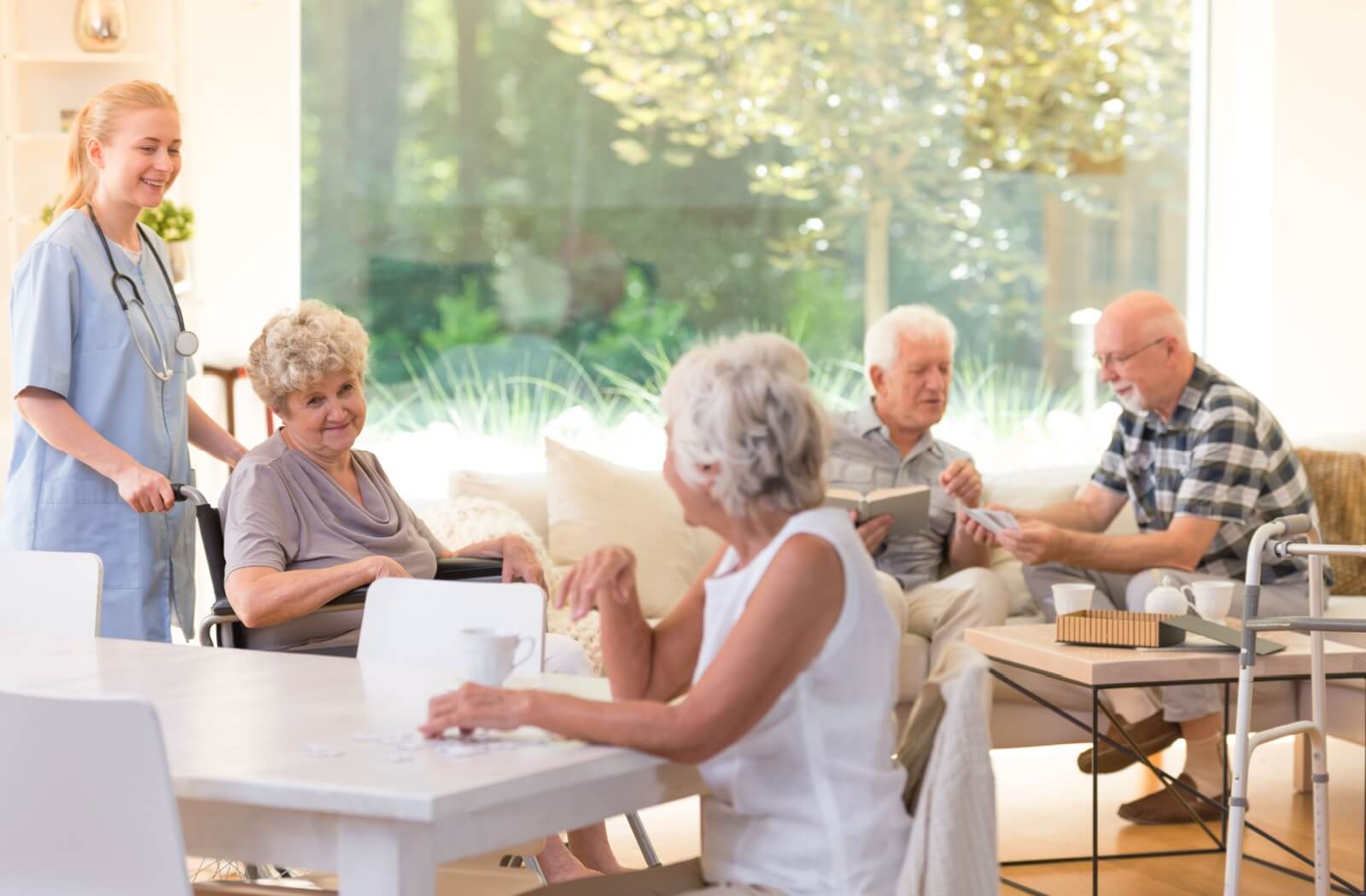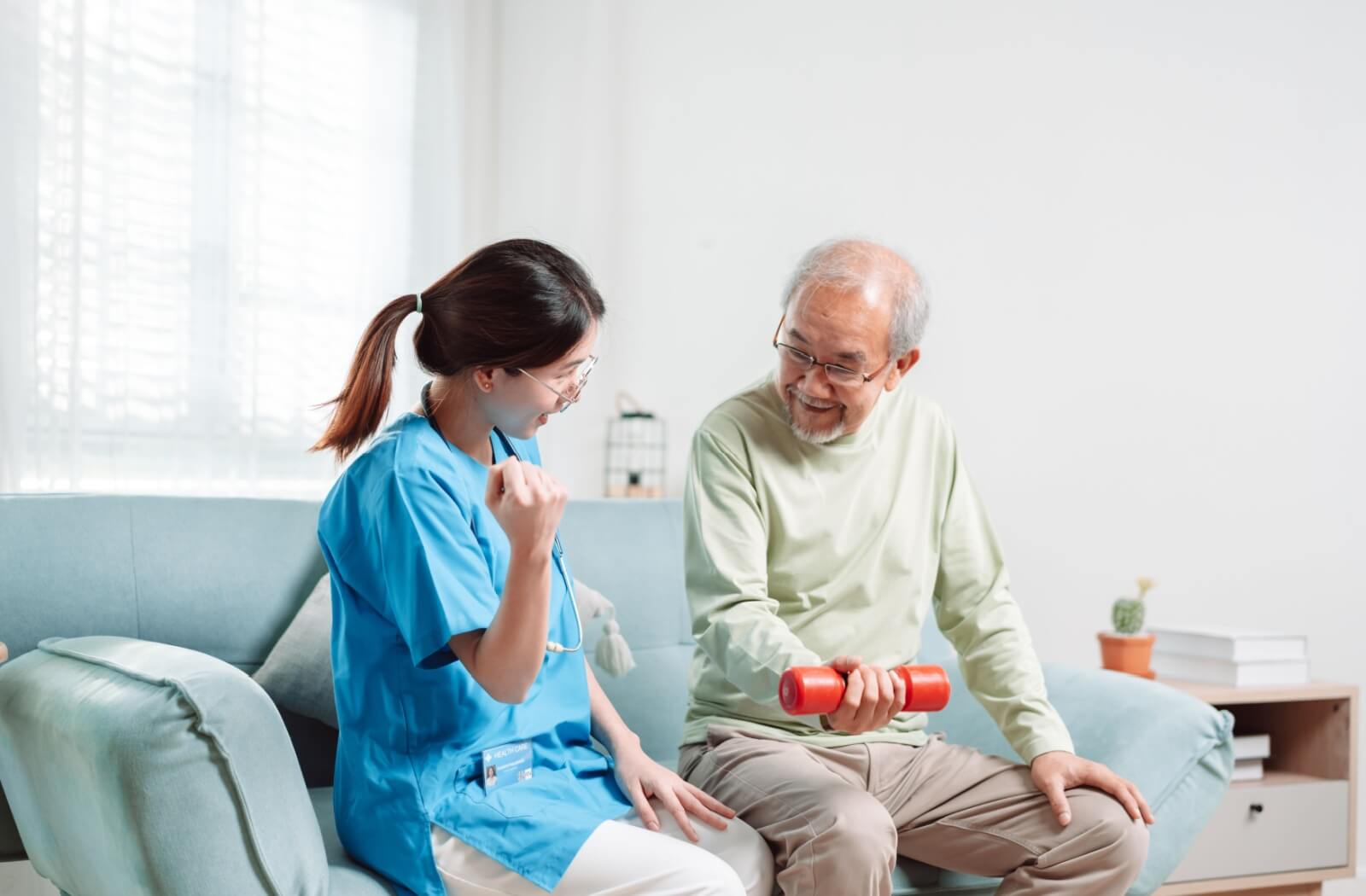What should you consider when choosing the right assisted living community?
The right community balances comfort, care, and independence—providing support while helping your loved one thrive. It’s a decision that involves more than location or cost; it’s about finding a setting where your loved one feels safe, connected, and at home.
This guide outlines important factors to consider, from services and staff to financial transparency and overall atmosphere, helping you navigate the process with clarity and confidence.
What to Look for in an Assisted Living Community
When evaluating potential communities, prioritize factors that align with your loved one’s needs, preferences, and quality of life expectations.
Location & Accessibility
The location of a community plays a key role in determining the connections and convenience that it can offer. Consider its proximity to family, friends, and familiar surroundings.
- Community proximity: Can family members visit regularly without inconvenience?
- Neighborhood features: Are there parks, shopping areas, or recreational facilities nearby?
- Seasonal accessibility: Will visitors and residents still have easy access to the community during colder months or unexpected weather conditions?
An accessible, well-located community helps ensure that your loved one remains connected to their social network while enjoying nearby resources.
Services & Amenities
Assisted living communities vary greatly in the services and amenities they provide. Choosing a community whose offerings reflect your loved one’s needs could make all the difference.
- Meal plans: Are meal options nutritious, flexible, and satisfying?
- Wellness programs: Does the community offer fitness classes or health monitoring services?
- Transportation: Is transportation provided for medical appointments, errands, or social events?
- Specialized care: Does the community provide memory care programs or rehabilitation services?
Communities like The McKendree offer services that can grow alongside residents’ evolving needs, such as memory care or skilled nursing.
Staff Experience & Ratio
The quality of care largely depends on the team providing it, so evaluating staff qualifications and their interaction with residents is important.
- Qualifications: Are staff members trained in senior care, including medical and emotional support?
- Resident-to-staff ratio: Does the community maintain a low ratio to ensure personalized attention?
- Atmosphere: During your visit, observe how staff interact with residents. Are they respectful, attentive, and compassionate?
Engaged, empathetic staff foster a positive environment where residents feel valued and cared for.

Cleanliness & Maintenance
Assess the community’s physical environment for signs of cleanliness and upkeep during your visit.
- Common areas: Are the communal spaces clean and inviting?
- Safety: Are there handrails, well-lit hallways, and non-slip flooring?
- Maintenance: How is the property managed? Ask about cleaning schedules and repair responsiveness.
A well-maintained community reflects an underlying commitment to providing a safe and comfortable living experience.
Cost & Financial Transparency
Ultimately, your choice of community may boil down to affordability, so you’ll need to understand the cost structure involved..
- Fee breakdown: What’s included in the monthly fee, and what requires an additional expense?
- Contract details: Check that the contract clearly outlines costs for added services.
- Financial assistance: Does the community accept insurance or offer assistance programs?
For example, The McKendree accepts various major insurance providers, which helps keep costs down and care accessible.
Researching & Touring Communities
Once you’ve narrowed down your list, take the time to experience each community in person. Make a note of your impressions and try to compare the services and amenities on offer.
Start with a Checklist
Creating a checklist of must-haves and nice-to-haves can help you remain focused during visits. Consider including points like specific care needs, pet-friendly policies, or availability of private rooms.
Schedule Visits
Visit each community to get a feel for the environment and daily life. Here’s what to look for during your tour:
- The overall atmosphere and resident interactions
- Engagement during activities or events
- Meal options and dining experience
Don’t hesitate to ask detailed questions during your tours. For example, inquire about staff training, emergency procedures, or their approach to individualized care plans.
Connect with Residents & Families
Speak with current residents and their families to get an honest perspective. They can provide valuable insight into the community’s culture and quality of care.
Final Steps for a Smooth Transition
Take Your Time
Choosing an assisted living community is a process that requires time and thought. Rushing the decision may result in overlooking important factors. Finding a community that feels like home for your loved one is the ultimate goal.
Seek Professional Advice
If you’re uncertain about any part of the process, consider working with experts who can offer tailored advice. Consulting a healthcare provider or case manager might also help identify specific needs that assisted living communities can address.
Finding the Right Fit with The McKendree
At The McKendree, we’re committed to providing personalized, high-quality care for our residents. Whether your loved one needs assisted living, skilled nursing, or memory care, our compassionate and experienced team helps them to feel supported and valued.
Schedule a tour of our community today, and experience first-hand what makes The McKendree a trusted choice for families. Our team is here to guide you through every step of this important decision.


